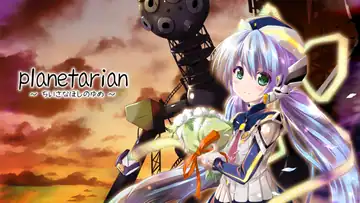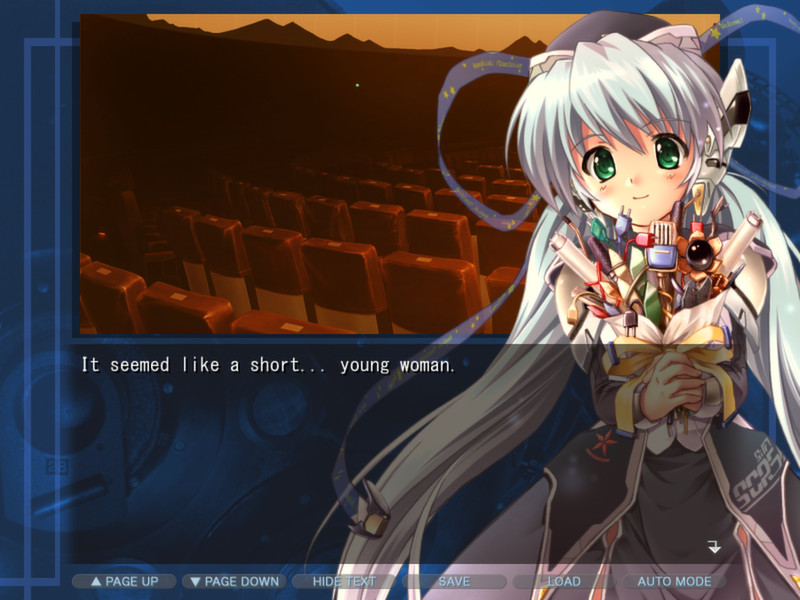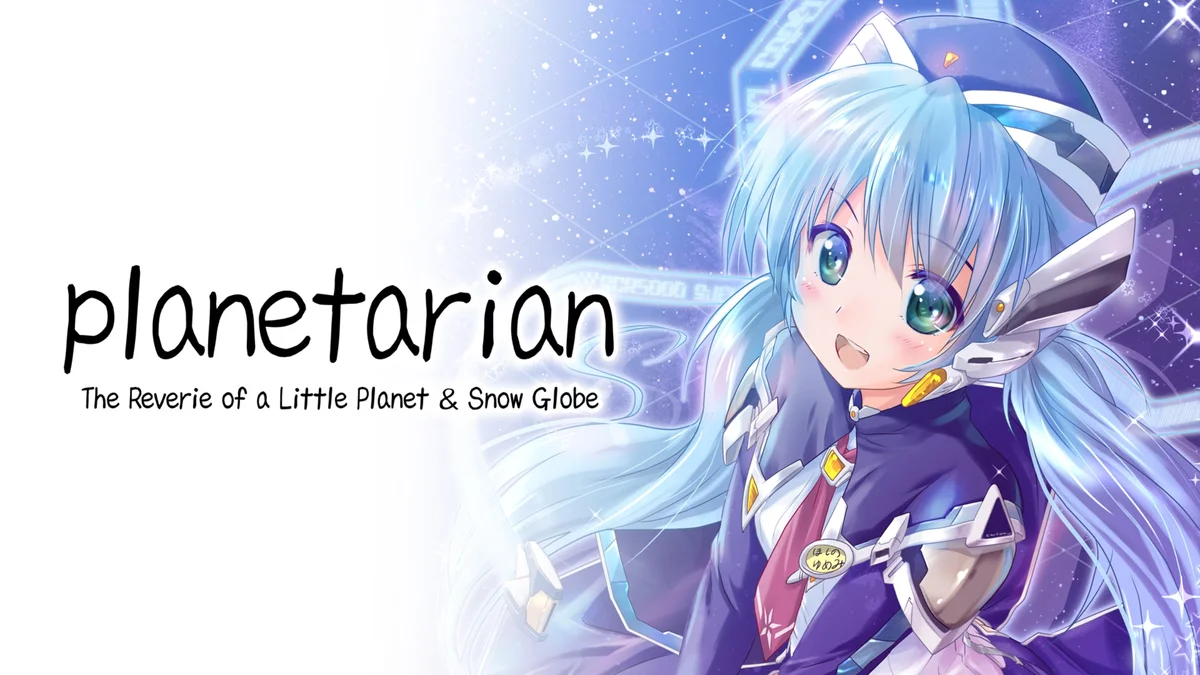In a ravaged, forsaken world, a robot girl holds onto dreams of the stars. This is the setting of Planetarian, a visual novel that gently tugs at the heartstrings and invites reflection on human connection and loss.
Let us explore what this world has left to offer.

An Introduction
Planetarian, developed by Key Studios , is a remastered version of the original visual novel released in 2004. Known for their emotional narratives, Key Studios delivers a poignant tale that resonates deeply.
Planetarian and Clannad are polar opposites in format. Clannad is a sprawling, complex visual novel with countless routes and endings. It’s beautiful but overwhelming, making players feel like they’ve only scratched the surface. In contrast, Planetarian embraces simplicity. It’s a kinetic novel—a linear story with no branches or alternate endings. This streamlined approach allows for a focused, powerful storytelling experience.
The story revolves around two characters: the “Junker,” a scavenger in a post-apocalyptic world, and Yumemi, a robot girl who faithfully waits for customers in an abandoned planetarium. Their interaction is the heart of this visual novel, blending melancholy and hope.
I haven’t watched the Animes adaptation, so my review is based entirely on my experience with the HD version of the game.

Themes and Symbolism
At its core, Planetarian is about hope and dreams in a world where both seem lost. Yumemi, the robot girl, embodies this hope. Her unwavering dedication to her role as a guide to the stars is a poignant reminder of humanity’s desire to find beauty and meaning, even in the bleakest circumstances. The stars, a recurring motif, represent the eternal nature of dreams and aspirations. Despite the world’s desolation, the stars remain unchanged—a constant beacon of hope.
The Relationship Between Junker and Yumemi
The relationship between the Junker and Yumemi forms the emotional core of Planetarian. The Junker, hardened by the harsh realities of a post-apocalyptic world, initially views Yumemi’s optimism with skepticism. But as he spends more time with her, he begins to appreciate her innocence and dedication. This bond between man and machine highlights themes of memory, hope, and the remnants of humanity in a broken world.
Yumemi’s persistence in showing the Junker the beauty of the stars, despite the desolation outside, is both heartwarming and heart-wrenching. The simplicity of this game, compared to other sprawling visual novels, is its greatest strength. In a genre often criticized for overly lengthy narratives, Planetarian stands out by delivering a concise yet powerful story.
Environmental and Musical Atmosphere
The atmosphere in Planetarian is beautifully crafted. The detailed backgrounds and character designs breathe life into the story, while the music underscores the emotional highs and lows with delicate precision. The planetarium scenes create a feeling of disbelief and wonder for the Junker, enhancing the thematic depth of the narrative. The music, ethereal and haunting, complements the desolate environment and the fleeting moments of hope within the planetarium, crafting a powerful auditory experience that amplifies the narrative’s impact.
Simplicity and Impact
Planetarian shows how much can be conveyed in a short visual novel. Unlike many titles that stretch their narrative thin, this game remains concise and focused. It shows that linear storytelling can be just as powerful as more complex narratives. The straightforward approach allows players to fully immerse themselves in the emotional journey without the distraction of multiple endings or paths.
Character Development
Yumemi’s character is a masterclass in writing. Her innocence and unwavering dedication to her role create a stark contrast with the bleak world outside. The Junker’s evolution from a hardened scavenger to someone who can appreciate and protect beauty is equally compelling. Their relationship is the emotional core of the story, and its development is handled with great care and nuance. Importantly, the game avoids typical romantic tropes, allowing the Junker’s character to grow authentically.
Critique and Conclusion
While Planetarian excels in many areas, the ending scene with Yumemi’s sacrifice lingers perhaps a bit too long, which might dilute the intended emotional impact. Nonetheless, it serves as a poignant reminder of the fragility of hope and the lengths to which we go to preserve it.
Planetarian is a testament to the power of storytelling in visual novels. It invites players to reflect on the enduring nature of dreams and the resilience of hope in the face of desolation. Yumemi’s story will linger in your heart long after the final credits roll.
My recommendation: If you haven’t experienced Planetarian, take the time to explore this beautifully crafted narrative. It’s currently on sale, making it an excellent value for such an emotionally rich experience. While I haven’t watched the Animes adaptation, the visual novel itself is a journey through the stars that you won’t soon forget.

